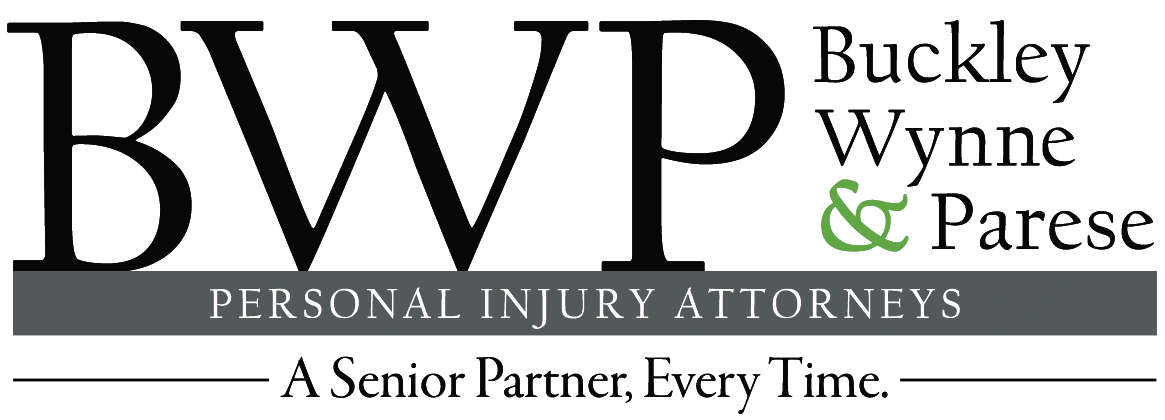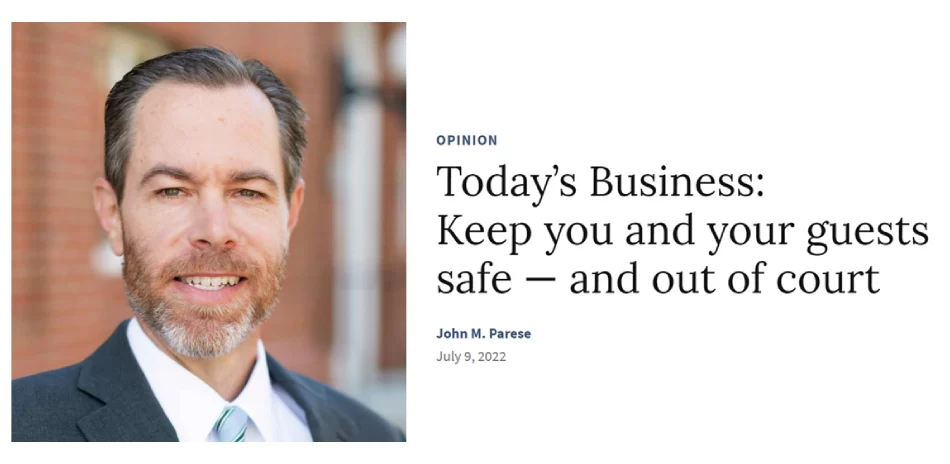Keep you and your guests safe — and out of court
When can you be held legally responsible if someone is hurt on your property? A comprehensive answer to this simple question is more nuanced than you might think. Whether you are a business owner or property owner, knowing the basics is essential.
Generally speaking, if you own, possess or control property, you are obligated to ensure that the property is reasonably safe for all reasonably anticipated uses. That means free of defects or dangerous conditions. A person bringing a claim for injury could win a lawsuit if he or she could prove that the owner or possessor either created the unsafe condition, knew of it, or, using reasonable care, should have known of the unsafe condition in time to have taken steps to correct the condition or to take other suitable precautions.
There is an important caveat here for property owners hiring others to work on their property.
The law provides that the one in “control” of the premises (often the owner or possessor) always has a nondelegable duty to invitees to maintain the safety of the premises. “Control” in this context means the power or authority to manage, superintend, direct, oversee, restrict or regulate. Thus, if an owner hired a contractor, for example, and that contractor acted negligently by failing to keep the premises reasonably safe, the one in control of the premises cannot escape liability by claiming lack of notice or that liability should rest with the one contracted to maintain the premises in a reasonably safe condition.
Assessing legal exposure requires a look into what “duty” is owed under the circumstances. That is, what level of care is owed to persons on one’s premises. Different circumstances command different levels of care. There are effectively three categories of people for whom a duty is contemplated: invitees, licensees and trespassers.
Invitees are owed the highest duty of care as these are people expressly or impliedly invited on the premises. One in possession or control of a premises owes invitees a duty to (1) use reasonable care to inspect and maintain the premises and to make the premises reasonably safe; (2) warn or guard the visitor from being injured by reason of any defects that could not reasonably be discovered; and (3) conduct activities on the premises in such a way so as not to injure visitors.
Licensees are owed a lower level of care than an invitees, as this is a person who is privileged to enter or remain by virtue of the possessor’s consent, but may not necessarily be expressly invited. Owners or possessors of land owe licensees essentially the same duties of care as invitees, less the duty to inspect the premises for unsafe conditions. Unlike invitees, there is no duty to warn licensees about unknown risks.
Trespassers are persons who enter property without a privilege to do so. Owners and possessors do not owe a duty to protect trespassers or to keep their land reasonably safe for adult trespassers. There is, however, a duty to refrain from intentional, willful, wanton or reckless conduct that causes injury to the trespasser. Also, under limited circumstances, there could be legal exposure for trespassers that consistently intrude upon a limited area of the land. Finally, beware that child trespassers are treated differently. In Connecticut, the law imposes an affirmative duty to take reasonable care to safeguard children from danger even if they are trespassers on the property.
Keeping your property safe and carrying adequate insurance is the best way to keep your guests safe and your assets protected.
Needed reform could very well save lives, make vehicles safer, and protect consumers. Clearly, the sooner reforms are enacted, the better for us all.
Attorney John M. Parese is a partner at the New Haven-based firm of Buckley Wynne & Parese. He can be reached at 203-776-2278 or [email protected].
This article was featured in the following news publications:

Serving All of Connecticut
Free Evaluation 24/7
We understand the stress of dealing with an injury. Our team is here to provide compassionate support and effective legal representation, statewide.

